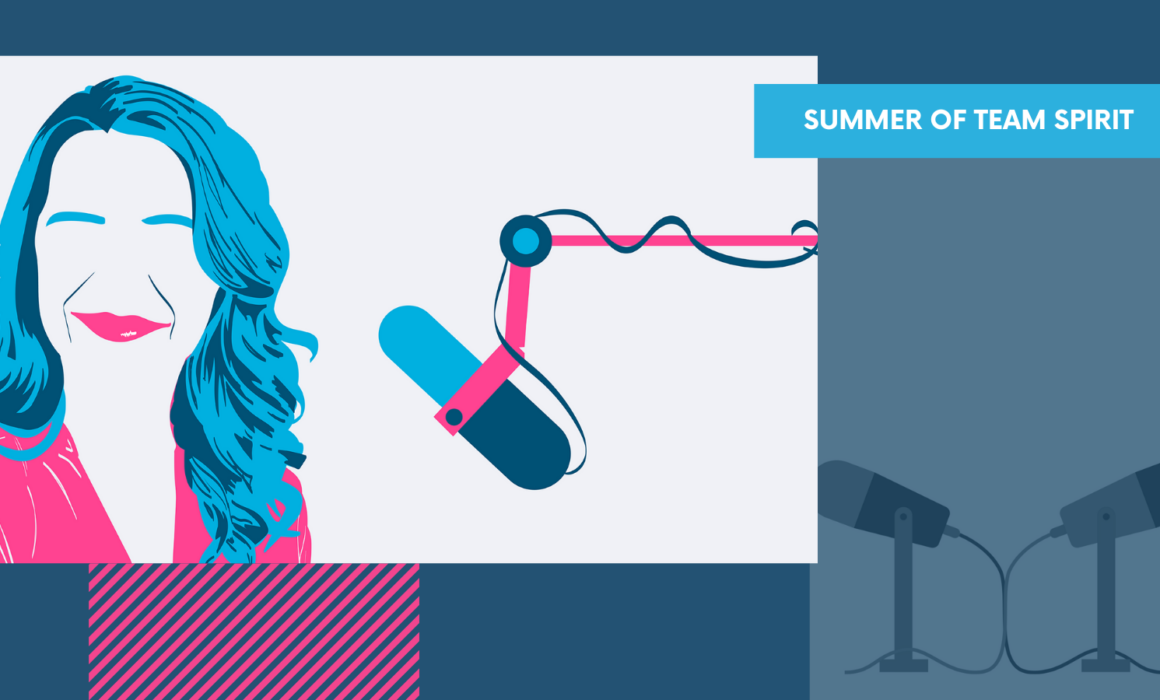Summer of team spirit
To introduce our Summer of team spirit, the BIU conducted a podcast interview with sport psychologist Katharina Albertin.
What is team spirit? In the BIU’s latest podcast interview, sport psychologist Katharina Albertin describes it as “saying ‘yes’ to a goal and then following it together.” There must be clarity about how this goal is pursued and achieved, along with who takes which responsibility, who has which role and who takes on which task, Albertin continues. The clearer these things are, the better the basis for a good team spirit.
A minimum consensus
In her own work, Albertin says she is often consulted during phases of conflict, or else to prevent problems arising, or to strengthen existing team spirit. “Actually, it’s always about me helping to find out and discuss what the team spirit is like, what the goal is, how it was achieved in the past or what was done in the past and what strategy is being pursued at the moment,” she says.
“For example, are there tasks and roles? Are there responsibilities and are there processes and communication structures. Uncovering this and making it visible within a team is then a very important task.”
Where these structure are missing or damaged, Albertin says that the task is one of “rediscovering, formulating, naming and always negotiating a great deal, especially when it comes to values: what is a minimum consensus and what can everyone say yes to and commit to?”
So how can team spirit help athletes to support each other in making ethically correct decisions when pressure comes from outside that could jeopardise integrity?
“If these structures for self-determination and self-responsibility are in place, then it is also possible to take responsibility together: for safe sport, for fair sport, for clean sport!”
Albertin’s answer is that opportunities for both self-determination and for taking personal responsibility must be provided in a team. “If these structures for self-determination and self-responsibility are in place, then it is also possible to take responsibility together: for safe sport, for fair sport, for clean sport!
“When boundary violations happen, when mistakes are made, it is usually because there is too much pressure on the team or on the individual, or there is an imbalance, some kind of protection is not in place.”
To protect against overstepping boundaries or other rule violations, Albertin says that it’s important “not only to look at these structures within the team itself, but also to see how the structures flow from the team to the coach to the officials. Who represents whom? Does the team have a voice? Does the team have athlete spokespersons or even captains, and not just in games, but who really has a role to play? Do we have a responsibility for the team, and do we also have a place where we can get involved and where we are heard?”
Promoting positive team spirit
How can coaches and support staff promote positive team spirit? Albertin’s answer refers to a well-established psychological theory, self-determination theory, which states that fulfilment of three basic innate human psychological needs, autonomy, competence and relatedness, is required for optimal human functioning.
She says: “These three basic needs are very central. You can actually check them relatively quickly in conversation when you’re out and about with people. Are these needs neglected or do they get a little nourishment? And if we have these three basic needs in mind, and have of course also internalised them in coaches, then we are already safe, which is what actually constitutes the feeling of dignity and self-determination of the individual. These are very important things that coaches can also keep in mind.”
Tips for new athletes
And, finally, with last season completed and a new one approaching, what are Albertin’s tips for making new athletes feel at home in an existing, well-functioning team?
“It’s very helpful when they [new athletes] are welcomed and integrated with rituals.” Says Albertin. “You can explain these codes and processes and structures to the new members and say to them, ‘Hey, what do we need to change this season, what has worked, what hasn’t?’ Of course, this makes it easier for new people to understand. What culture am I entering? What are the values? What are the structures?
“That helps with integration and also helps the remaining team to keep developing and see where we need to adapt and where not. So new people are always an opportunity because you realise a lot of things again. But you also need to be patient and accept that there will be change. And that somehow keeps you fresh and young in spirit and team spirit.”
This podcast interview was conducted in German. To listen to the interview, please click here.


